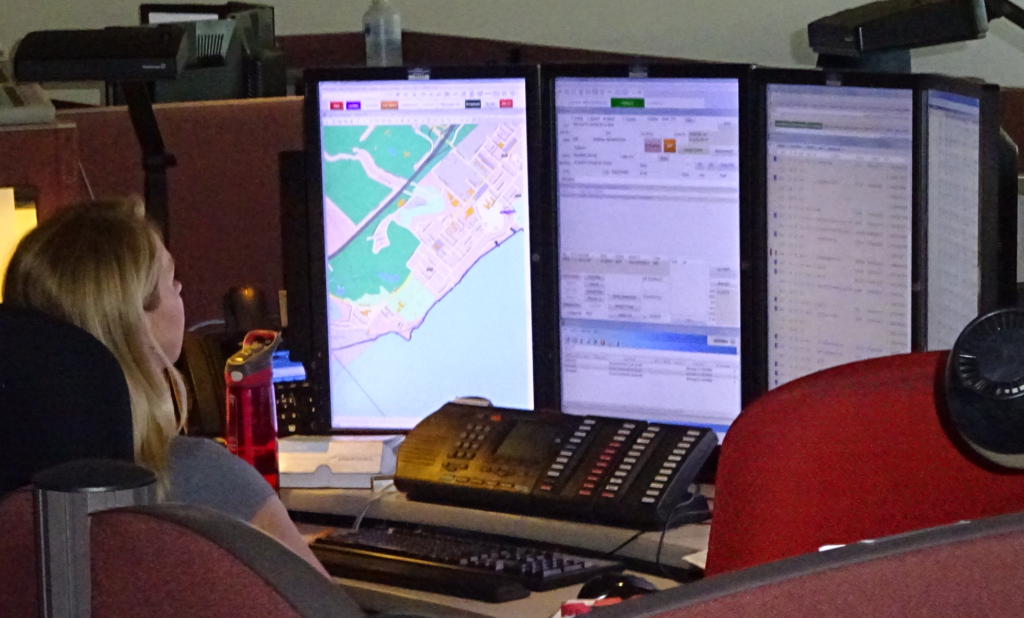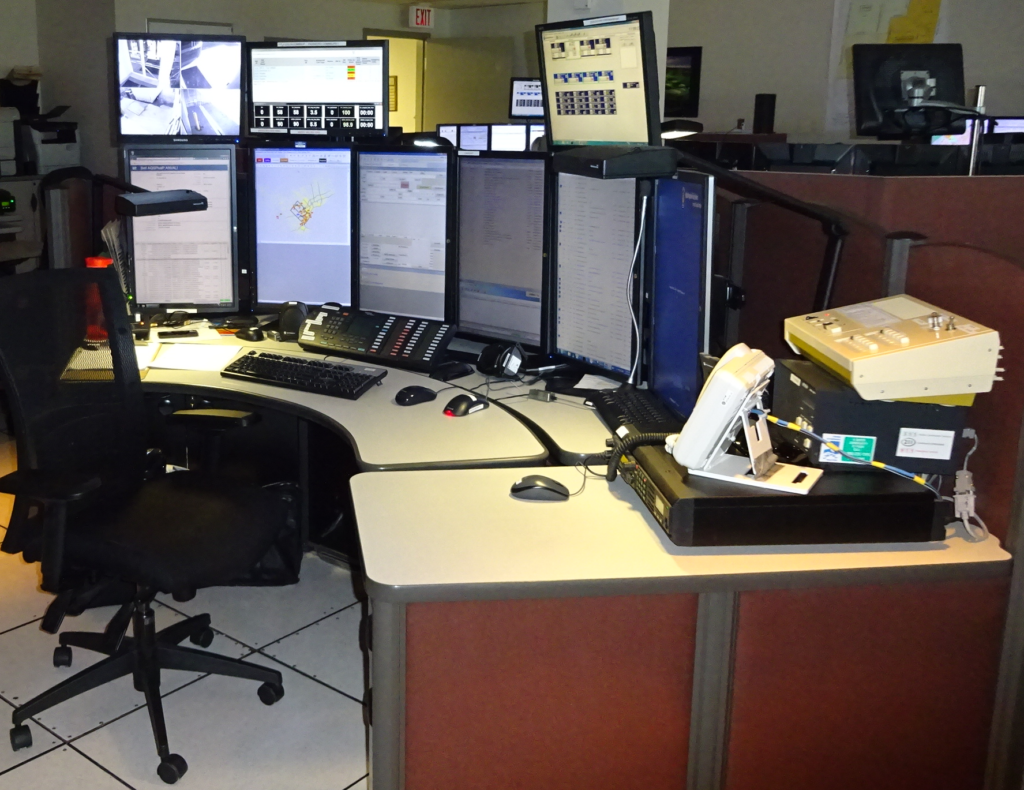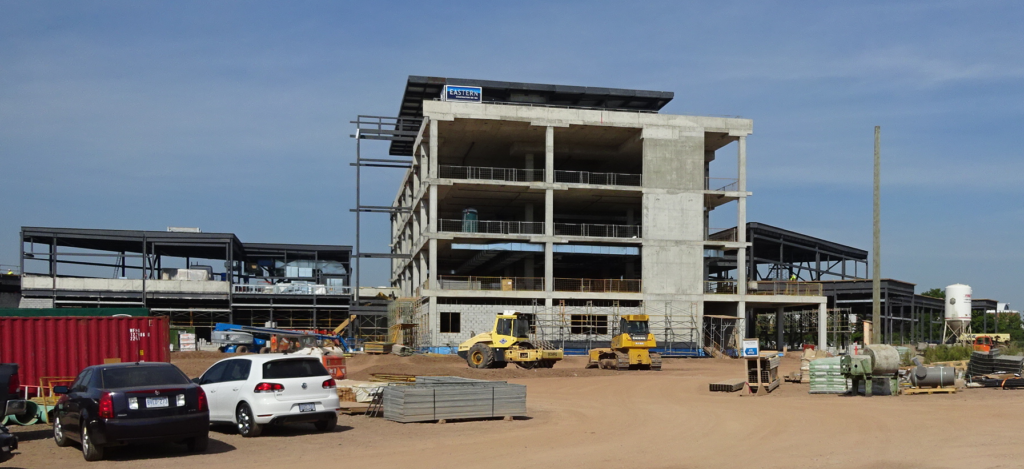 By Pepper Parr
By Pepper Parr
August 18th, 2016
BURLINGTON, ON
The Dispatch side of the Regional Police communications unit is quite different than the Intake side.
The Intake people deal with whatever comes to them – the dispatch people are closer to the action. They come into the picture when the Intake side is unable to resolve an issue.
The job is a little more exciting on the Dispatch side – a dispatch operator can pull up a screen and see exactly where the patrol cruisers are in the community she is handling (the vast majority of the comm-unications staff are female).
Their is a GPS system in every cruiser.

The Dispatch operator for Oakville keeps her eyes glued to the monitors in front of her as she communicates with officers in the field.
There is a Dispatch operator for each community: Oakville, Burlington and Milton – Halton Hills is included in the Milton operation.
The Dispatch people can be in instant contact with every unit of the Halton Regional Police Service (HRPS).
They are basically the connect point for every police officer in a vehicle on patrol.
Dispatch can be linked to the Marine unit in Oakville and patch them into police cruisers that are on a scene at the pier in Burlington.
The Dispatcher is basically a tool, a resource for the front line police officers who rely on them for information and at times direction.

Shift supervisor works form this station – count the monitors she has in front her – that plus three mice.
Dispatchers, like the Intake people are monitored all the time by the shift supervisor who can listen in on any operator.
The tension is a little higher on the Dispatch side.
During my time with this unit I sat with Nicole and Sam; both women had parents or relatives who were in the police service who suggested they give it a try.
It involves shift work which doesn’t work for some people.
It also calls for a lot of training and you become part of the unit by being smart and quick. There wasn’t all that much going on when I sat in with the Dispatchers – but when it gets hectic – everything rests on their shoulders.
They give definition to what is meant when we say “multi-tasking”.
There are several woman who have been with the communications unit for close to 35 years.
Sam decided to drop out of university – it wasn’t what she wanted to do – she likes the pace and the rush that comes from those occasions when there is a situation that is very active with several police cruisers involved in an action.
Nicole managed a tanning salon – these are ordinary people who happen to have that collections of skills and ability that makes them good listeners who can adapt to a changing situation quickly.
None of the communications people are sworn officers – they are all civilians doing a critical job and overseen by a staff sergeant.
The training is rigorous and everyone is cross trained and moved from task to task during a shift; any operator can do any job. A full time trainer is part of the unit.
The significant changes in communications technology adds to the need for constant training.

New police headquarters, yards away from th current office, is scheduled to open in July of 2017
In July of 2017 the communications unit will move to the top floor of the new police headquarters where they will have a lot of new equipment and some new furniture. Staff Sergeant Dave Cross who oversees the unit points out that some of the furniture is more than 25 years old.
Migrating from one location to the other is going to be something of a logistics challenge – which the unit will handle with considerable aplomb – that’s what they do.
Related article:
Civilian operators keep the flow of critical information constant at police communications unit


















